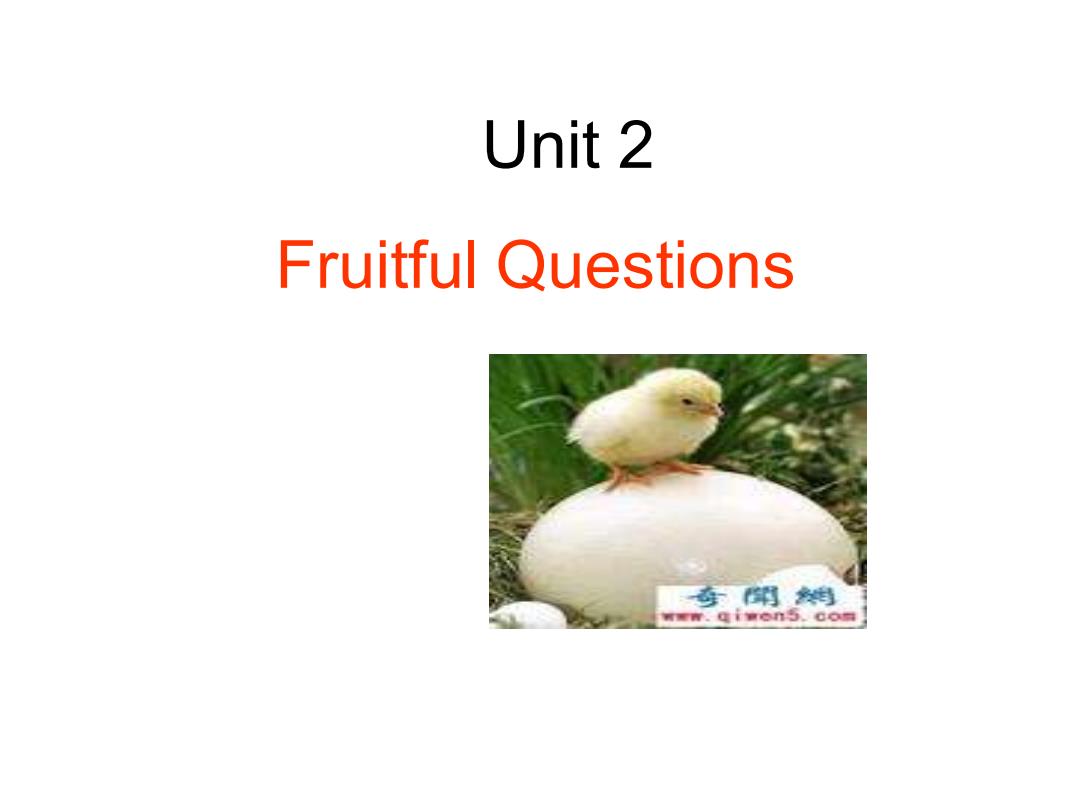
Unit 2 Fruitful Questions
Unit 2 Fruitful Questions
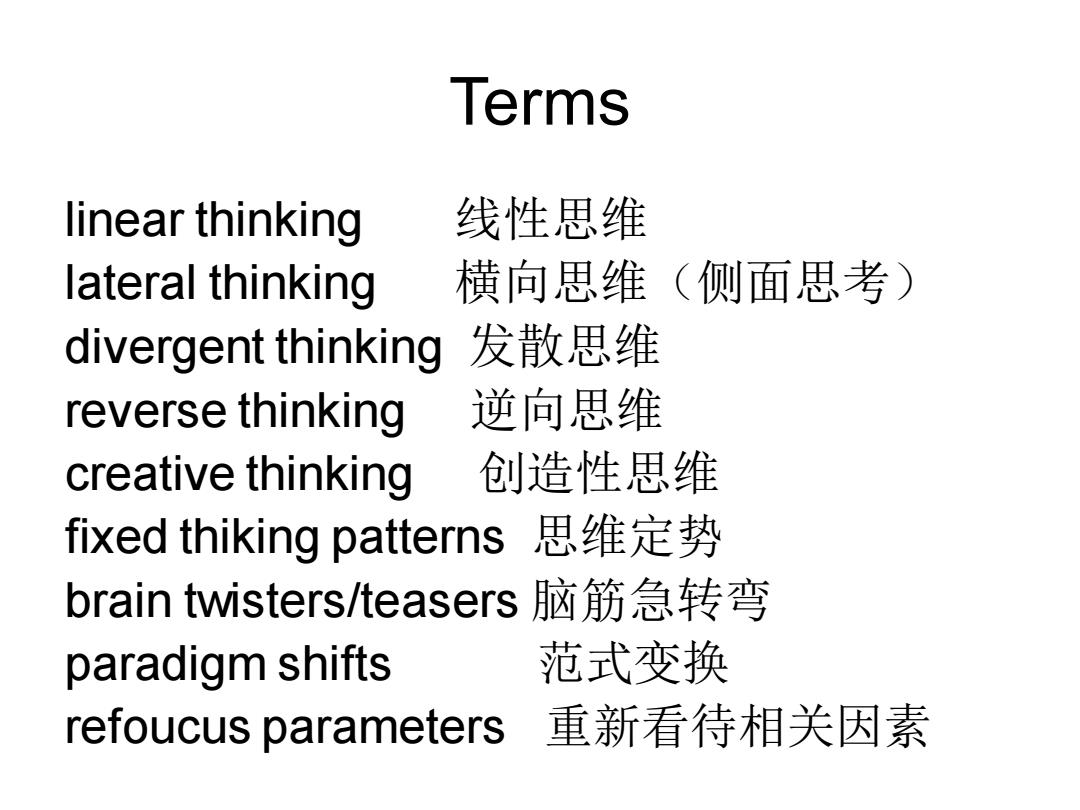
Terms linear thinking 线性思维 lateral thinking 横向思维(侧面思考〉 divergent thinking 发散思维 reverse thinking 逆向思维 creative thinking 创造性思维 fixed thiking patterns思维定势 brain twisters/teasers脑筋急转弯 paradigm shifts 范式变换 refoucus parameters 重新看待相关因素
Terms linear thinking 线性思维 lateral thinking 横向思维(侧面思考) divergent thinking 发散思维 reverse thinking 逆向思维 creative thinking 创造性思维 fixed thiking patterns 思维定势 brain twisters/teasers 脑筋急转弯 paradigm shifts 范式变换 refoucus parameters 重新看待相关因素
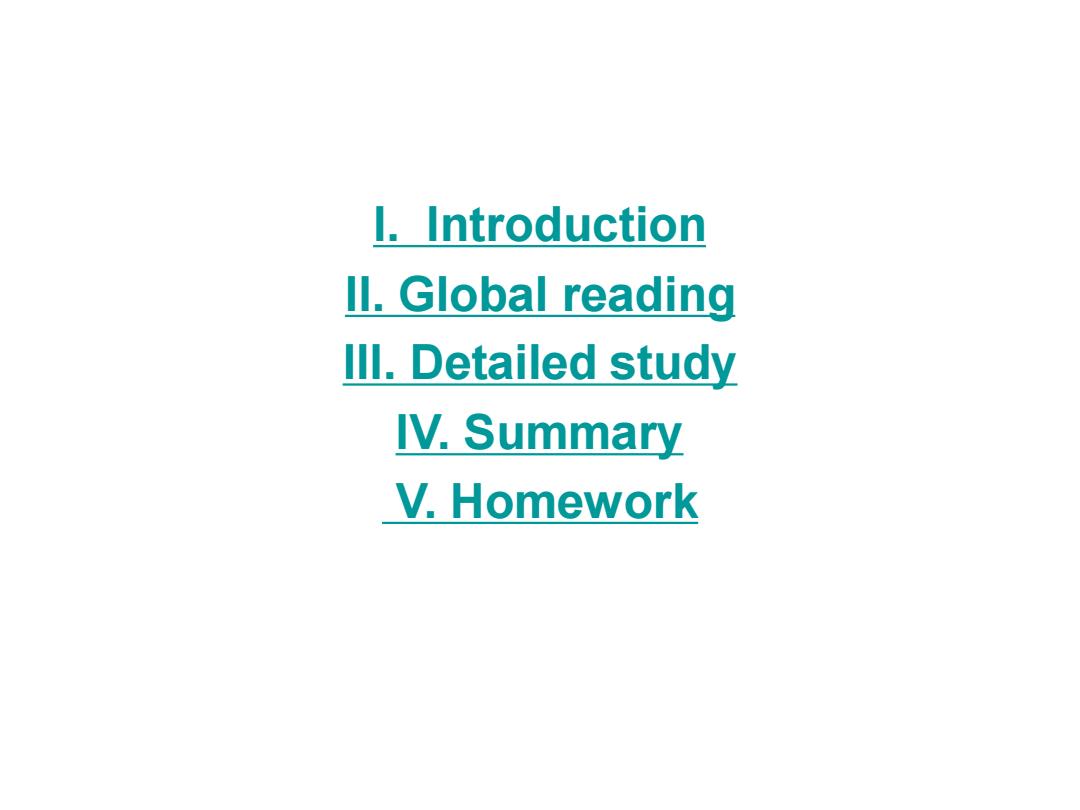
1.Introduction Il.Global reading Ill.Detailed study IV.Summary V.Homework
I. Introduction II. Global reading III. Detailed study IV. Summary V. Homework

(I)Warm-up Questions (II)A Brief Introduction of Nicolas Copernicus (Ill)Copernicus'Two Followers -Galileo and Bruno
(I) Warm-up Questions (II)A Brief Introduction of Nicolas Copernicus (III)Copernicus’ Two Followers — Galileo and Bruno
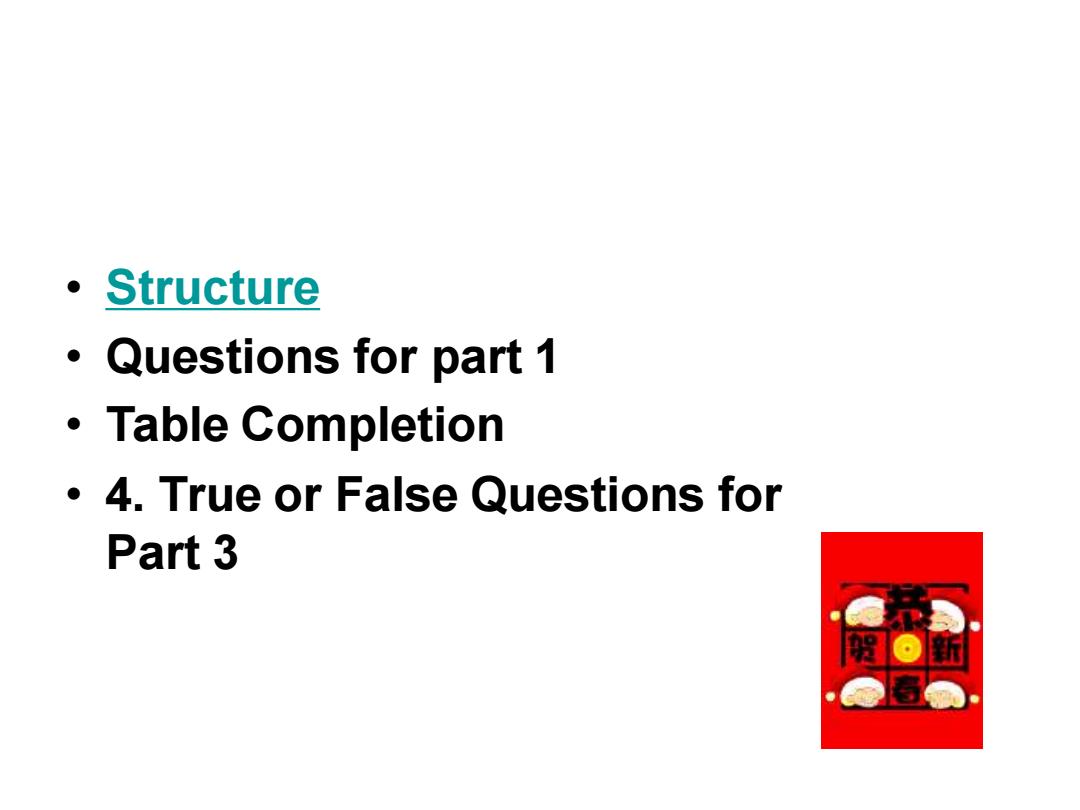
● Structure ·Questions for part1 ·Table Completion 4.True or False Questions for Part 3
• Structure • Questions for part 1 • Table Completion • 4. True or False Questions for Part 3
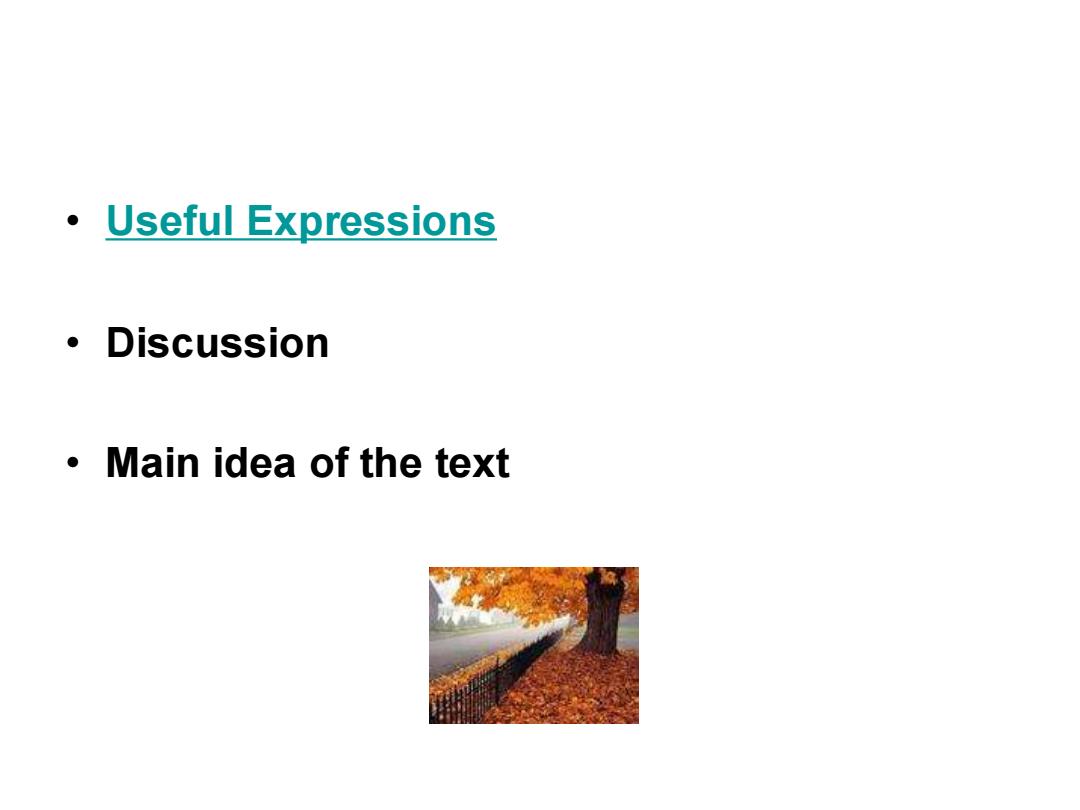
·Useful Expressions 。Discussion 。Main idea of the text
• Useful Expressions • Discussion • Main idea of the text
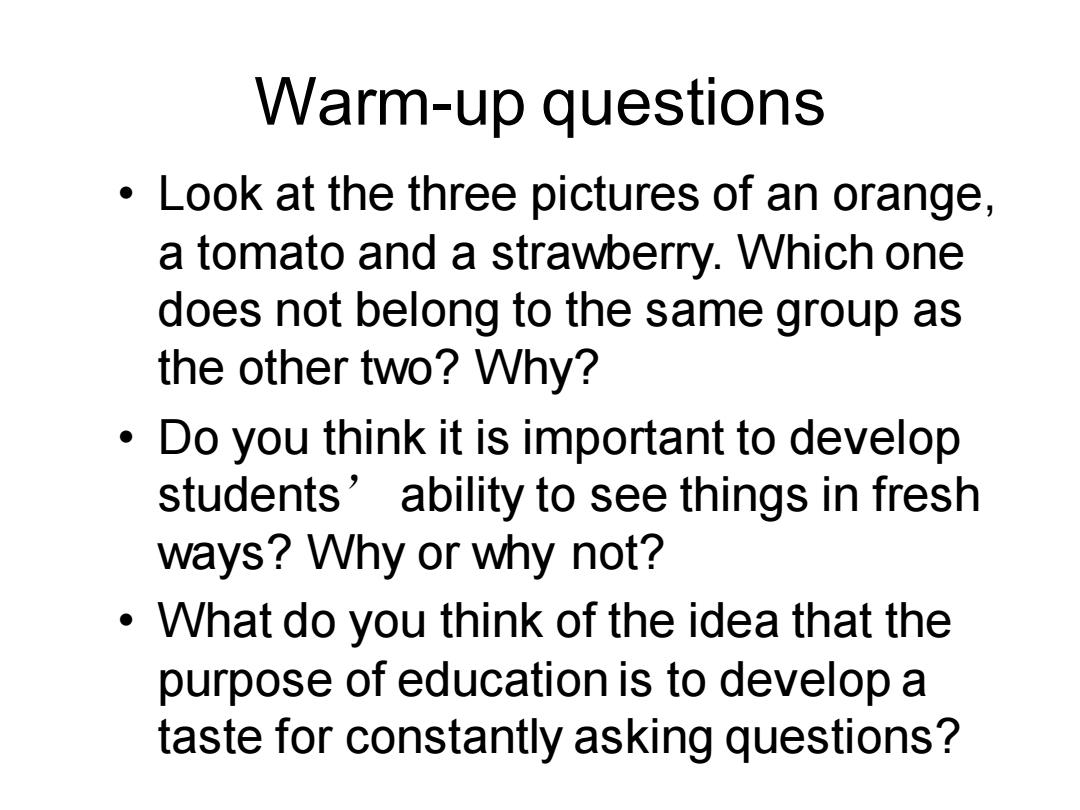
Warm-up questions Look at the three pictures of an orange, a tomato and a strawberry.Which one does not belong to the same group as the other two?Why? Do you think it is important to develop students'ability to see things in fresh ways?Why or why not? What do you think of the idea that the purpose of education is to develop a taste for constantly asking questions?
Warm-up questions • Look at the three pictures of an orange, a tomato and a strawberry. Which one does not belong to the same group as the other two? Why? • Do you think it is important to develop students’ ability to see things in fresh ways? Why or why not? • What do you think of the idea that the purpose of education is to develop a taste for constantly asking questions?
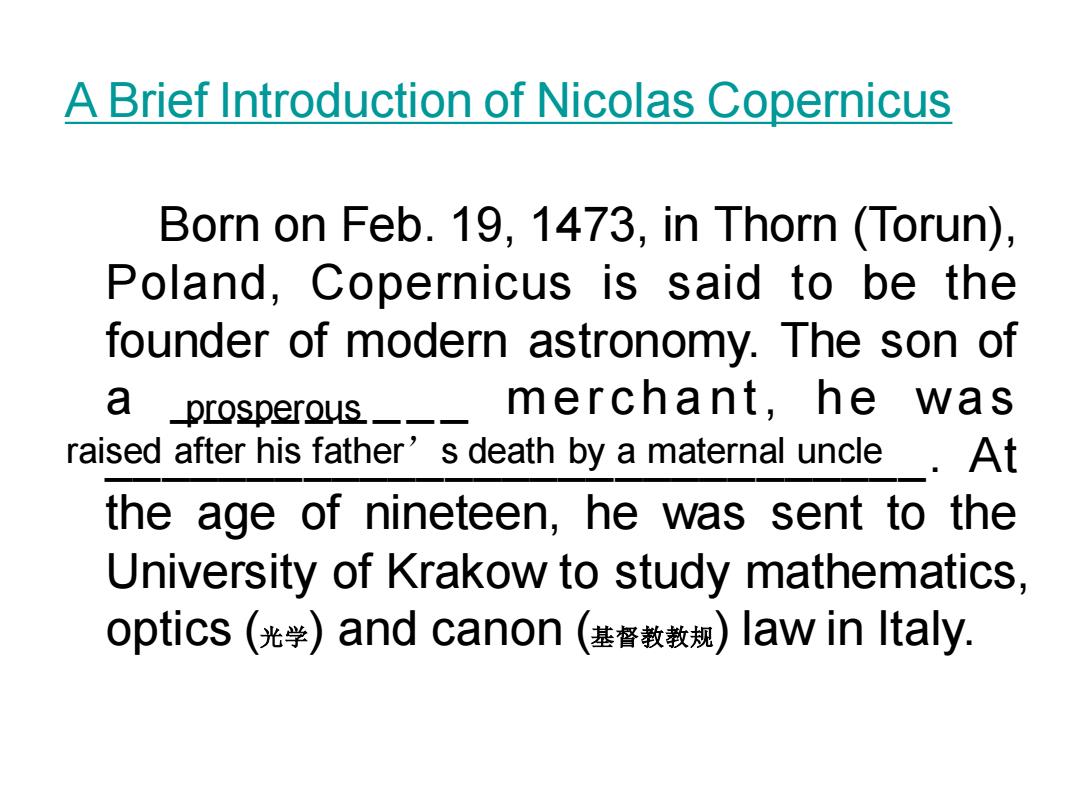
A Brief Introduction of Nicolas Copernicus Born on Feb.19,1473,in Thorn (Torun), Poland,Copernicus is said to be the founder of modern astronomy.The son of aprosperous merchant,he was raised after his father's death by a maternal uncle.At the age of nineteen,he was sent to the University of Krakow to study mathematics, optics(光学)and canon(基督教教规)law in Italy
A Brief Introduction of Nicolas Copernicus Born on Feb. 19, 1473, in Thorn (Torun), Poland, Copernicus is said to be the founder of modern astronomy. The son of a _________ m e rc h a n t , h e wa s _____________________________. At the age of nineteen, he was sent to the University of Krakow to study mathematics, optics (光学) and canon (基督教教规) law in Italy. prosperous raised after his father’s death by a maternal uncle

This experience _stimulated young Copernicus to study further liberal arts at Bologna (1496-1501),medicine at Padua,and law at the University of Ferrara,from which he emerged in 1503 with the doctorate in canon law. Shortly afterward,he returned to Poland and eventually settled permanently at the cathedral near his hometown.Through his uncle's influence he had been elected canon(咏礼司铎)of the cathedral.Copernicus not only faithfully performed
• This experience _________ young Copernicus to study further liberal arts at Bologna (1496-1501), medicine at Padua, and law at the University of Ferrara, from which he _________ in 1503 with the doctorate in canon law. Shortly afterward, he returned to Poland and eventually settled ________ at the cathedral near his hometown. Through his uncle’s influence he had been elected canon(咏礼司铎) of the cathedral. Copernicus not only faithfully performed stimulated emerged permanently
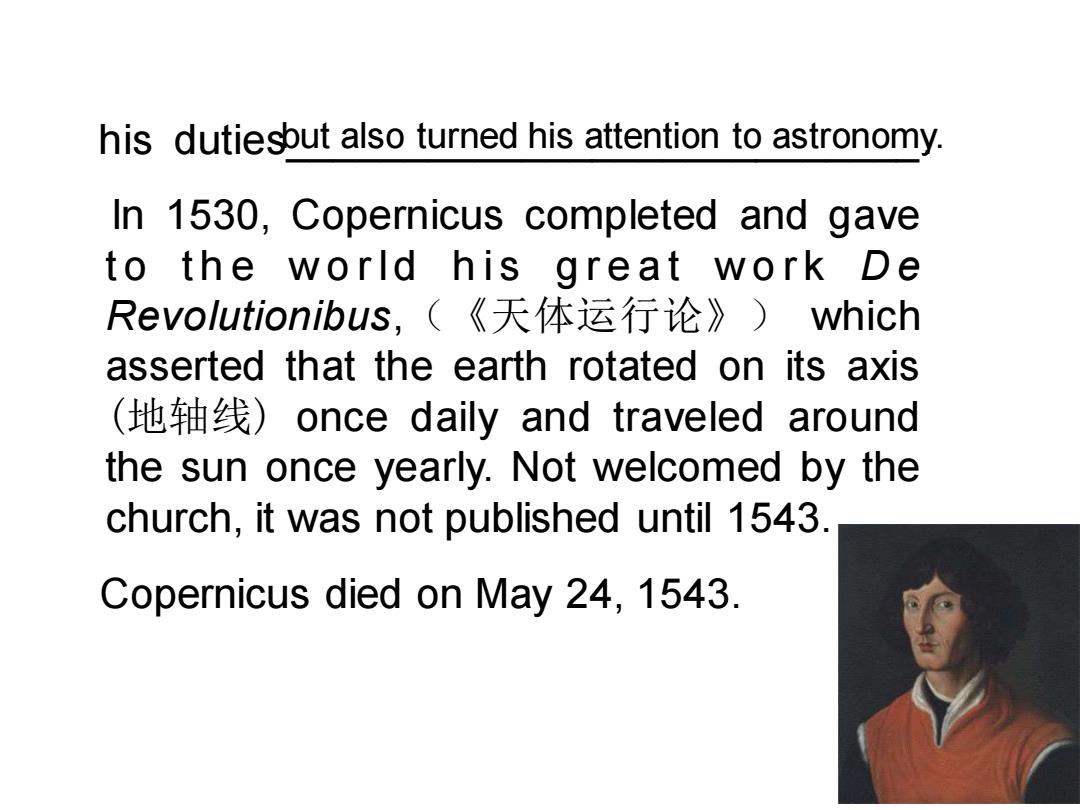
his dutiesbut also turned his attention to astronomy. In 1530,Copernicus completed and gave to the world his great work De Revolutionibus,(《天体运行论》)which asserted that the earth rotated on its axis (地轴线)once daily and traveled around the sun once yearly.Not welcomed by the church,it was not published until 1543. Copernicus died on May 24,1543
his duties___________________________. In 1530, Copernicus completed and gave t o t h e w o r ld h i s g r e a t w o r k D e Revolutionibus,(《天体运行论》) which asserted that the earth rotated on its axis (地轴线) once daily and traveled around the sun once yearly. Not welcomed by the church, it was not published until 1543. Copernicus died on May 24, 1543. but also turned his attention to astronomy